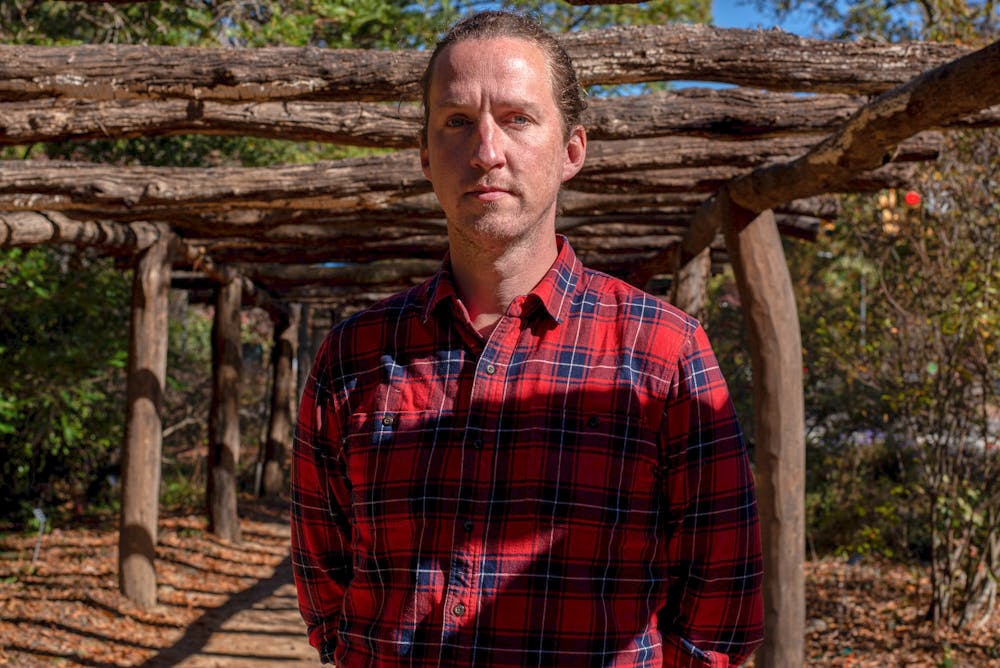“Often our staff works from home, they work from home far more than they ever did before,” he said. “And if people have to teach face to face, they come in, they teach their classes and then disappear.”
Kinlaw echoed Watson’s belief that University faculty are less connected to each other as a result of the pandemic. While virtual learning was a solution during the heightened pandemic years, he recognizes the shortcomings of online instruction.
“Something that I think can be really challenging is just not being able to look people in the eye in person and meet people where they are and have smooth interactions all the time,” he said. “I think that's harder. So it just takes four-and-a-half times the effort.”
Professor of Nutrition and Medicine Beth Mayer-Davis shared her thoughts on virtual teaching in an FEC meeting on Monday.
“Our students now say, ‘Oh, well, you know, any given course you can do on Zoom,’” she said. “Well, we had to do that for a time. But many courses from a pedagogical perspective are not designed to be done on Zoom because of how the course is being taught.”
Like Kinlaw, Mayer-Davis said she thinks virtual interactions on Zoom are less consistent and lack the engagement of in-person classes.
Navigating in a post-pandemic world
On top of the difficulty of teaching virtual classes, faculty also met challenges such as understanding the complexity of caring for others and themselves in an isolated environment.
Watson said the expectations placed on many faculty members by their departments have changed. He believes that non-tenured faculty now feel additional pressure to fulfill the requests of their superiors, even when they do not have the time.
“There's just a lot more extra work that goes into finding the polite, acceptable way to say no to too many things being asked of you or getting the same kind of respect in the classroom or from your colleagues,” Kinlaw said.
Boundaries and solutions
Kinlaw also cited staff shortages as a contributing factor to faculty exhaustion. He said the staff are the University’s “unsung heroes” — but he believes they are underpaid.
To get the day's news and headlines in your inbox each morning, sign up for our email newsletters.
He said that staff should receive raises, and faculty should not feel pressured to take on extra responsibilities unless they receive a meaningful change in their salary or leadership status.
“Paying people and recruiting better and trying to retain people would be a really good way to make people feel a little bit more involved in the University,” Kinlaw said.
For faculty and staff in need of mental health support, Kinlaw suggested reaching out to the University’s Employee Assistance Program (EAP), a system that seeks to aid employees in both serious and minor personal crises.
But Kinlaw believes the University can do more. He said training faculty members to understand mental health challenges and empathize with those in need of support would be a positive step for all faculty.
He recommended the School of Social Work’s ‘Mental Health First Aid’ training program as a good resource for mental health training.
MHFA training is an eight-hour session that teaches attendees basic skills to help someone experiencing a mental health crisis and highlights professional resources to enlist if extra care is warranted.
The training is available via online registration as a single full-day session or as two half-day sessions and it is free to UNC faculty, staff, and students, according to the School of Social Work’s website.
@adelepmorris17
university@dailytarheel.com



